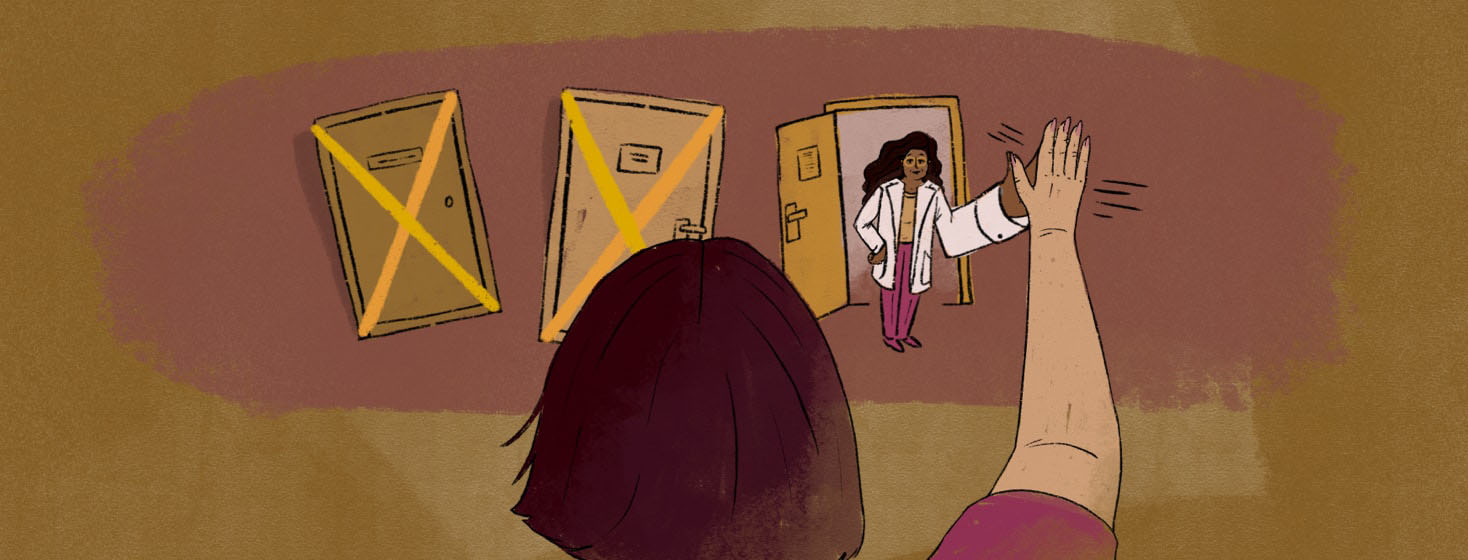In the Right Direction: Getting a Third Opinion
As written in my previous article, after having been diagnosed with Ehlers-Danlos Syndrome (EDS) and experiencing facial swelling (angioedema), I sought a proper diagnosis from two prominent allergists at my local university hospital. The first doctor I met with basically laughed me out of his office. The second made no attempt to help me find a cause or offer solutions to mitigate my symptoms.
A year after seeing doctor #2 my symptoms flared again, prompting me to get yet another opinion. Dr. W was another allergist at my local children’s hospital, and I hoped that he would finally have the answers I was so desperately searching for.
What Dr. #2 didn’t tell me…
During my initial appointment with Dr. W, he reviewed notes from previous visits with different allergists and went over my lab work. While most testing had come back normal, there was a particular lab value that caught Dr. W’s eye. This lab, called the CU (chronic urticaria) Index, had come back elevated. And not just a little elevated, mind you. The normal range for a CU Index is between 1 and 10. My CU Index came back as 40.9! That’s more than four times the normal limit for this test.
So what does it mean? It means that I most definitely have a condition called Chronic Idiopathic Urticaria.
So why wasn’t I told about this?? Well, I guess I was. In passing. Maybe? But even if he did, Dr. #2 never took the time to explain the condition or discuss treatment options with me.
Chronic idiopathic urticaria
Chronic idiopathic urticaria (CIU) is an autoimmune condition, whereby, the body attacks its own mast cells, causing them to release histamine. This is in stark contrast to other types of hives which are usually caused by allergens, which also cause mast cells to release histamine. Armed with this “new” piece of information, we were able to proceed.
Though it was pretty clear what my problem was, Dr. W listened to what my symptoms were and even offered alternatives for what might be causing them. He also clearly ruled out other possibilities, like mast cell activation syndrome (MCAS). I guess Dr. Expert had that one right after all. And, thanks to Dr. #2, no further workup had to be done. After my first visit with Dr. W, we began to develop a plan for treating my chronic hives.
My CIU and angioedema
My symptoms have progressed since I first started seeing Dr. W. I went from only having facial swelling to flushed cheeks, to hives, to mouth and throat swelling, and even the occasional anaphylactic reaction. Recently I have been dealing with these strange hives that pop up on the backs of my arms or my fingers. They last much longer than the typical hive. They itch and burn and can last for days. Dr. W did a biopsy of one of those hives and was able to rule out Urticarial Vasculitis, which is another rare kind of chronic hives that also has systemic implications. The only thing the biopsy showed was that it was, in fact, a hive.
Dr. W is graciously working with me to figure out my new symptoms. He is always willing to meet with me and responds to my questions. He has called me after hours, more than once, to check on me. He includes me in treatment decisions. He has yet to give up looking for answers.
Finding answers can be extremely difficult, but finding a good doctor is even harder. I am blessed to have a number of excellent doctors, but it has come by dealing with doctors who are less than helpful and seeking second and third opinions in some cases. There are many less than great doctors out there, but there are a few gems.
Keep searching for answers. Continue to ask questions, even the hard ones. And most of all, never give up!
Have you experienced angiodema (swelling) as part of your chronic hives journey? Share your story in the comments below, or in our stories and forums!

Join the conversation